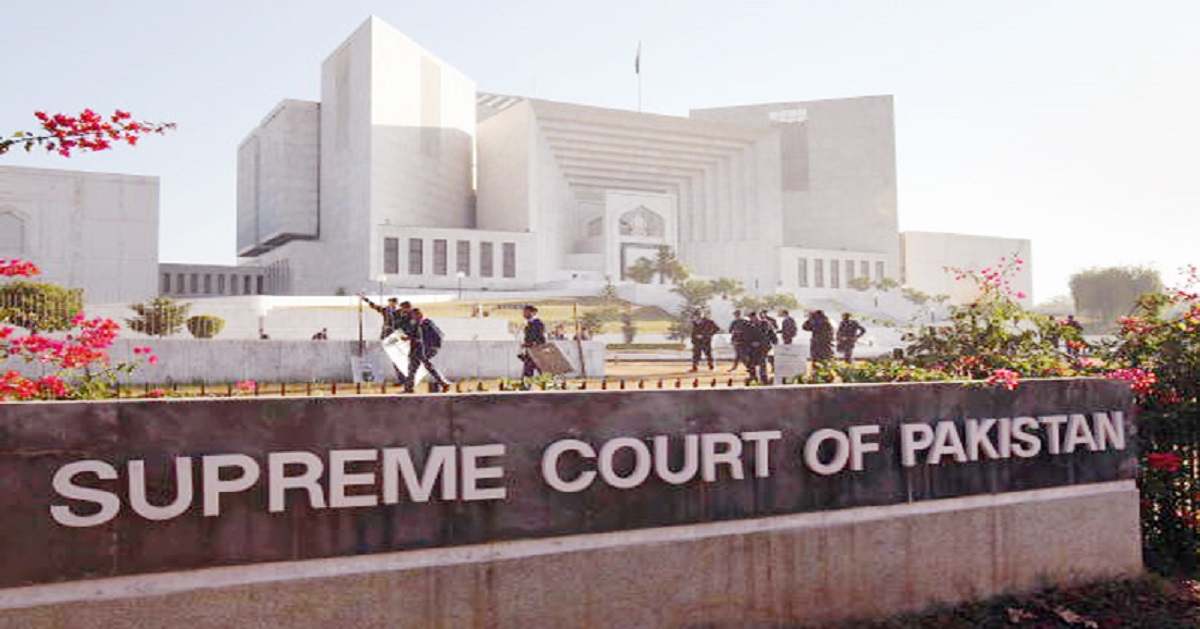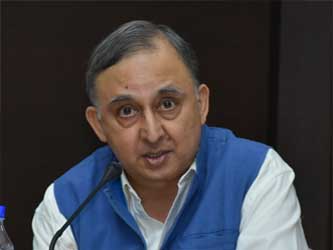In 2007 President Musharraf had tried to brow beat the then Chief Justice of the Supreme Court Iftikhar Chaudhry to desist from hearing cases of ‘enforced disappearances’ in Balochistan. This had led to a nation-wide movement of lawyers and ultimately to the ouster of the dictator.
Twelve years later, history seems to be repeating itself. Now it is another Supreme Court justice from Balochistan1 - Justice Qazi Faez Isa - who is in the eye of the storm. The Imran Khan government has filed presidential references against him with the Supreme Judicial Council (SJC). The similarity does not end there. Apparently, those who have prepared the reference in the law ministry and attorney general’s office were closely associated with Musharraf and the anti-lawyers movement.2 In fact, it seems that the services of a former Supreme Court judge - who had taken oath under the 03 November 2007 Provisional Constitution Order (PCO) - was hired to file the reference.
The reference has the potential of triggering another judicial movement and becoming a focal point for a serious agitation against the government.
The Charge
The government, through the President of Pakistan, has filed references with the SJC accusing two judges of gross misconduct by possessing undeclared foreign properties and thus violating the Judges Code of Conduct. Action has accordingly been sought to remove them from their office through the recommendation of the SJC in terms of Article 209 of the constitution. The two judges are Justice Qazi Faez Isa of the Supreme Court and Justice Karim Khan Agha3 of the Sindh High Court.
The allegation is concealing the acquisition of foreign properties by the wife of Justice Isa. Apart from the concealment, the reference also alleges that the source to acquire the properties was not accounted for. The implication is that the properties were acquired through money laundering. The properties in question are: 40, Oakdale Road, London E11 4DL owned by Zarina Montserrat Khoso Carrera and Arsalan Isa; 90 Adelaide Road, London E10 5NW owned by Zarina Montserrat Khoso Carrera and Sehr Isa Khoso; 50 Coniston Court, Kendal Street, London W2 2AN owned by Zarina Montserrat Khoso Carrera and Sehr Isa Khoso.4
Though a regular tax filer, Justice Isa had never declared the above foreign assets of his spouse Zarina Motserrat Khoso Carrera. She had filed a declaration for the tax year 2014 but she had also not disclosed the afore-stated assets.
Justice Qazi Faez Isa
Justice Isa was elevated as Chief Justice of the Balochistan High Court in August 2009 and to the Supreme Court in September 2014. He is the son of the late Qazi Mohammad Isa (1913-1976) of Pishin in Balochistan. Qazi Isa was an important leader of the Pakistan Movement. The Pakistan Postal Service had issued a commemorative postage stamp in his honor in 1990. His grandfather Qazi Jalaluddin was at one time the Prime Minister of Kalat State. Interestingly, Justice Isa's cousin is Ashraf Jahangir Qazi who was at one time Pakistan’s High Commissioner to India.5
Within the legal fraternity, Justice Isa is a highly respected figure known both for his strong judgments on important issues as well as for being an unflinchingly independent and principled judge. He has developed a reputation of being a critic of the unconstitutional actions of the ruling elites especially the army and has also been sceptical of the accountability process against opponents of the government. 6 Significantly, Justice Isa is slated to become the Chief Justice of the Supreme Court in mid-2023 when the next general elections are scheduled.7
Many consider Justice Isa’s real sin to be his February 2019 judgement on the Faizabad dharna by the Tehreek-i-Labbaik Pakistan (TLP). The judgement was a damning appraisal of the unconstitutional actions and inactions of the ruling circles, especially of the army and the role of the Pakistan Tehreek-i-Insaf (PTI). The judgement flagged the perception that the ISI was involved in or interfered with political matters.8 The government has now petitioned the Supreme Court to set aside the verdict claiming that the judgment leads to the ‘inescapable conclusion that the judge was biased’. 9 Interestingly, the new Inter-Services Intelligence (ISI) Chief, Lt Gen Faiz Hameed, was the key figure in the dharna events. Several government departments have also filed review petitions and the logic seems to be to have Justice Isa removed so as to prevent his hearing them.
Another issue is the animosity of the current law minister Dr Farogh Naseem. Earlier, Justice Isa had strongly opposed giving status of senior advocates of the Supreme Court to those lawyers who had supported Pervez Musharraf’s 03 November 2007 PCO and emergency. One of the lawyers who were thus denied the status was Farogh Naseem.1
The reference against Justice Isa was leaked and accompanied by a simultaneous and orchestrated anti-Justice Isa campaign in the media raising questions about transparency and intent. It prompted the judge to write to the President, Arif Alvi, on 29 May 2019 seeking confirmation and a copy of the reference. He added in his letter, ‘Selective leaks amount to character assassination, jeopardise my right to due process and fair trial and undermines the institution of the judiciary’.11 He again wrote to the President on 03 June 2019, repeating his request for a copy of the reference. He also underlined that the matter suggested something sinister to undermine the independence of the judiciary.12
Reaction
The reference against Justice Isa has provoked a strong backlash. On 31 May 2019 the Senate adopted an opposition-sponsored resolution that strongly condemned the government’s filing of the reference calling it mala fide and politically motivated. The resolution added that the reference was a ‘direct attack on the independence of judiciary and aimed at stifling the voices of reason, truth and justice in the highest judiciary.’13
The unease was also highlighted by the resignation of the Additional Attorney General Zahid F Ebrahim – widely regarded as an upright lawyer – who in a strongly-worded letter contended that the matter was not about accountability of judges but ‘a reckless attempt to tarnish the reputation of independent individuals and browbeat the judiciary’.14 He charged that the government had already set its mind against the judge in the much-publicised review petitions in the Faizabad dharna case filed last month.15
The Human Rights Commission of Pakistan (HRCP) has also expressed its concern at the timing of, and apparent intention behind the presidential reference. It has pointed out that not only had the reference effectively leapfrogged other references pending with the SJC, but the review petitions filed against Justice Isa’s judgment in the 2017 Faizabad sit-in case also remained undecided. It saw the reference as an attempt to undermine the independence of the judiciary and make it subservient to the wishes of the executive.16
By and large, the legal fraternity has come out in support of and expressed faith in the integrity and honesty of Justice Isa. They have termed the reference against him a mala fide attempt to oust an independent and upright judge. Except the Punjab Bar Council the other three provincial bar councils, the Pakistan Bar Council (PBC) and the Supreme Court Bar Association (SCBA) have expressed reservations and raised questions over how the move affects the independence of the judiciary.17 Several of them have demanded withdrawal of the reference and some have called for the resignation of the law minister. The SCBA has threatened to lock down courts. On the call of the PBC, lawyers protested all over Pakistan on 14 June when the SJC heard the reference.
The government has meanwhile warned lawyers and opposition parties of dire consequences if they took the law into their own hands during protests against the filing of references.18
The Supreme Judicial Council (SJC)
The SJC is the only forum for initiating action against judges for misconduct. It consists of five top judges – the Chief Justice of Pakistan as Chairman, two senior-most judges of the Supreme Court and two senior-most judges of the High Courts as members. Currently, Chief Justice of Pakistan Asif Saeed Khosa is the chairman. Other members are: Justice Gulzar Ahmad, Justice Sheikh Azmat Saeed, Sindh High Court Chief Justice Ahmed Ali M Shaikh and Peshawar High Court (PHC) Chief Justice Waqar Ahmad Seth.
The procedure for dealing with a reference in the SJC is as follows: first, a complaint or reference is filed. Second, an evaluation is made if it has sufficient material for an inquiry. Third, an inquiry is held following which the Council can take the view that there is insufficient evidence and may conclude the matter. Fourth, if the Council feels otherwise, a show-cause notice is issued and the judge has to explain his/her conduct within 14 days. Finally, a decision is taken on the show-cause notice. The matter may be dismissed at any stage if there is insufficient material in the opinion of the Council justifying further action. If the Council forms an opinion that the judge concerned has been found guilty of misconduct, it can communicate its findings to the President for removal of the judge under Article 209 of the Constitution.
The SJC met on 14 June 2019 to commence a preliminary hearing of the reference against the two judges. However, since it was a closed-door session, not much is known what transpired. What is known, however, is that the SJC shared with Justice Isa and Karim Khan Agha copies of the presidential reference that accused them of hiding their foreign assets. The SJC also offered both judges the option to clarify their position on the allegations levelled against them if they so desired at the stage of preliminary inquiry.19 None of them were issued a formal show-cause notice but provided an opportunity for them to explain and convince the council that the allegations were frivolous.
Analysis
Legal experts have pointed out that there is a vital difference between Income Tax laws and laws pertaining to disqualification of parliamentarians for not declaring assets in the name of family members. The difference is that election laws specifically mandate that parliamentarians must declare their spouse’s and children’s assets in addition to their own but the Income Tax laws do not so state. It is only when the Tax Commissioner sends a notice to the tax-payer in this regard that the tax payer must list his spouse, minor children and other dependents’ assets in addition to his own. Apparently, no such notice was sent to Justice Isa and so he was not required to declare them. 20 Even if Justice Isa’s wife and children had to declare the properties and did not do so, they could have been proceeded against under the Income Tax laws. The question being asked is how does this justify SJC proceedings against Justice Isa.
The government’s contention is that the properties listed in Justice Isa’s wife and children’s names should be presumed to belong to him. Thus, the implication of filing the reference is that the government has concluded that the properties held by Justice Isa’s wife and children are benami and actually owned by Justice Isa himself. However, legal experts have pointed out that the burden of proving this rests upon the person making the allegation (i.e. the tax authorities). Unlike the National Accountability Bureau (NAB) law under which Nawaz Sharif was disqualified as Prime Minister, the legal presumption here is that the apparent state of affairs is real unless the contrary is proved. 21
It would appear that the reference was filed without the government looking into all aspects of the case. If the government was convinced about tax evasion, the income-tax authorities should have confronted the Justice and based on his explanation, further action could have been initiated. Clearly, such steps were not taken and so the entire reference gives the appearance of being arbitrary.22
Conclusion
With the media already muzzled, the government beholden to the army, the judiciary is perhaps the only institutional opposition left that can check the army’s de facto domination of the country. The intention of the reference clearly is to silence independent voices in the judiciary and those who have handed down critical verdicts or even passed remarks on issues that the establishment considers taboo. The reference against Justice Isa is a signal to the other independent judges is to fall in line or face similar pressures.
According to media reports, the reference had its opponents in the government with several PTI ministers and members of Parliament reportedly conveying their disapproval to President Arif Alvi and Prime Minister Imran Khan. Even the President was supposedly unhappy but he had to act on the advice of the Prime Minister. He, however, did modify the harsh language of the reference prepared by the Law Ministry.23
Leaving aside the history of Musharraf’s confrontation with the judiciary, the present is clearly an inopportune time for the government to open another front. In the first nine months of its tenure, the PTI government has dashed the hopes of a large number of people who had voted for Imran Khan. The strong belief that he would change the destiny of the country has almost dissipated with most people having stopped believing that he can. As against the expectation of a ‘naya’ Pakistan, the additional taxes in the budget have caused resentment against the government. With their key leaders behind bars, both the Pakistan People’s Party (PPP) and the Pakistan Muslim League-Nawaz (PML-N) together with other opposition parties have no option but to try and exploit this opportunity to launch an anti-government movement. The reference against an independent judge of the Supreme Court provides yet another issue for them on which to mobilise support.
Pakistan today is at a critical juncture. It is increasingly isolated, financially bankrupt, under threat of being put on the Financial Action Task Force (FATF) black list, facing a growing human rights movement of the Pashtuns and questions being raised about its ability to provide adequate governance. Additionally, Imran Khan has inherited a deeply polarised polity and society with rapidly declining tolerance for dissent.24 If the reference issue escalates it could greatly add to the internal frictions and cause further disaffection with the state.
In such a situation, the army and Imran Khan should be asking themselves how do they hope to subdue independent judges when even Musharraf at the height of his dictatorial powers was unable to do so.25
At the time of writing, the next steps of the SJC or which way the case will go are not known. However, if the reference is taken to its logical conclusion and Justice Isa is actually removed, the issue could well trigger another judicial movement. With the opposition having been pushed to the wall, this issue could become the pivot for an agitation against the government.
References
- Though a Punjabi, Iftikhar Chaudhry’s family had settled in Quetta where he was Advocate General and Chief Justice of the Balochistan High Court before being elevated to the Supreme Court.
- Faisal Siddiqi, ‘2007 déjà-vu’ Dawn, 10 June 2019, https://www.dawn.com/news/1487244/2007-deja-vu
- This article focuses on the reference against Justice Isa.
- Fakhar Durrani, ‘What’s in references against judges Faez Isa, KK Agha’, The News, 03 June 2019,https://www.thenews.com.pk/print/479879-what-s-in-references-against-judges-faez-isa-kk-agha
- Sabir Shah, ‘Bright family background, recent verdicts of Justice Faez Isa’, The News, 28 March 2018, https://www.thenews.com.pk/print/297563-bright-family-background-recent-verdicts-of-justice-faez-isa
- Faisal Siddiqi, ‘2007 déjà-vu’ Dawn, 10 June 2019, https://www.dawn.com/news/1487244/2007-deja-vu
- Umar Cheema, ‘Another would-be chief justice in the eye of storm’, The News, 01 June 2019, www.thenews.com.pk/print/478887-another-would-be-chief-justice-in-the-eye-of-storm
- 10 major takeaways from SC's Faizabad sit-in judgement’, Dawn, 08 February 2019,
https://www.dawn.com/news/1462177/10-major-takeaways-from-scs-faizabad-sit-in-judgement - ‘Contempt of Court?’, edit in The Nation, 13 April 2019, https://nation.com.pk/13-Apr-2019/contempt-of-court
- Hasnaat Malik, ‘Justice Qazi Faez Isa's differences with judges’, The Express Tribune, 05 June 2019 https://tribune.com.pk/story/1987016/1-justice-qazi-faez-isas-differences-judges/
- ‘Reference against judges’, edit in Dawn, 31 May 2019, www.dawn.com/news/1485629/reference-against-judges
- ‘Nothing about London properties was hidden: Faez’, Dawn, 04 June 2019 https://www.dawn.com/news/1486390/nothing-about-london-properties-was-hidden-faez
- Muhammad Anis & Mumtaz Alvi, ‘Opposition in Upper House passes resolution against reference: Government loses in Senate’, The News, 01 June 1 2019
- Reference against judges’, edit in Dawn, 31 May 2019
- Ansar Abbasi, ‘Alvi, ministers anticipating drive for Justice Faez Isa: Unhappy president and dejected ministers’, The News, 31 May 2019, https://www.thenews.com.pk/print/478497-alvi-ministers-anticipating-drive-for-justice-faez-isa-unhappy-president-and-dejected-ministers
- ‘HRCP questions reference against Justice Isa’, Dawn, 12 June 2019, https://www.dawn.com/news/1487649/hrcp-questions-reference-against-justice-isa
- ‘References for judges’, edit in The News, 01 June 2019, www.thenews.com.pk/print/478943-references-for-judges
- ‘Cabinet warns against agitation over judges case’, Dawn, 04 June 2019, https://nation.com.pk/04-Jun-2019/cabinet-backs-pm-s-accountability-resolve
- Hasnaat Malik, ‘SJC shares reference copy with Justice Qazi Faez Isa’, The Express Tribune, 15 June 2019, https://tribune.com.pk/story/1993344/1-sjc-shares-reference-copy-justice-isa/
- Salahuddin Ahmed, ‘Scrap reference against Justice Isa’, Dawn, 09 June 2019, https://www.dawn.com/news/1487022/comment-scrap-reference-against-justice-isa
- Ibid
- Umer Gilani, ‘Deliberating a reference’, The News, 09 June 2019, https://www.thenews.com.pk/print/481741-deliberating-a-reference
- Ansar Abbasi, ‘Alvi, ministers anticipating drive for Justice Faez Isa: Unhappy president and dejected ministers’, The News, 31 May 2019
- Reference against judges’, edit in Dawn, 31 May 2019
- Faisal Siddiqi, ‘2007 déjà-vu’ Dawn, 10 June 2019 https://www.dawn.com/news/1487244/2007-deja-vu
(Tilak Devasher is a former Special Secretary, Cabinet Secretariat, Government of India. He is currently Member, National Security Advisory Board and Consultant, Vivekananda International Foundation)
Image Source: https://dailytimes.com.pk/static/uploads/original/sc-judge-warns-against-bringing-the-judiciary-down-b822e00931864359760927de8ebc4c9c.jpg











Post new comment